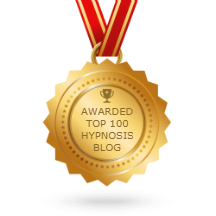By Herve Boisde
Crazy times in the world these days. Whether it's politics in America or strife around the globe it can be stressful to follow the news day to day. ISIS and extremism dominate the headlines and extremist politics seem to be taking hold here at home in the US. When everyone appears to be looking for real leadership instead we seem to be getting mobs riled up by angry and fearful pseudo-leaders. Sometimes it's difficult to be hopeful for the future.
People wiser than me have said that in times like this it's better and easier to start at home...meaning ourselves. If we want healing and positivity in the world then we need to first look in the mirror. Gandhi might have said it best but for whatever reason today I had Michael Jackson's song stuck in my head today. "If you wanna make the world a better place, take a look at yourself and then make the.....change"
It's natural and easy to react to problems with fear. With change comes uncertainty and with uncertainty comes stress and anxiety. On a global scale this translates into lots of distrust and negative politics and perhaps violence. As human organisms our natural primitive instinct is to go into 'fight or flight' mode. But fight or flight evolved as a survival mechanism to be used in short bursts when man was confronted by an imminent threat such as a dangerous animal. Once our ancestors either confronted or fled the threat, they would literally shake off the stress (like your pet dog does after it gets startled) and then calm down immediately, ready to resume the day in peace.
Nowadays we have been socially conditioned to "keep it together" so we don't tremble or shake off the stress when we endure a traumatic or scary event. This animation describing that process is the basis for TRE or Trauma Releasing Exercises which are meant to release pent-up traumatic stress in the body
In essence, modern humans are not in touch with their natural healing instincts and responses. But those instincts to heal are still there. And if the world is to become more...human, then it's our job to nurture those instincts again. Meditation, hypnosis and other healing modalities help us to reconnect with our true basic nature. In terms of the mind, those instincts are held in the subconscious.
In our current Information Age we have placed so much value on the linear, logical, analytical thinking of the conscious mind, that we are neglecting our instincts and intuition. As a hypnotherapist, it's my job to help my clients get into alignment on a mental, physical and spiritual level. That means that the conscious mind and the subconscious mind need to be on the same page, working together towards the same goals. If someone is unhappy or unfulfilled in life, it's usually because there's a conflict or disconnect between their conscious and subconscious thoughts. Buried or suppressed emotions can also lead to stress and anxiety.
Let's heal ourselves and the world. And rehumanize. And with that, I'll leave you with this other 80's reference. Peace.


